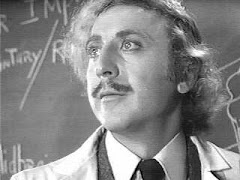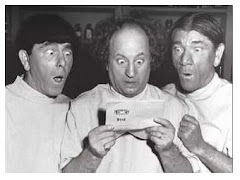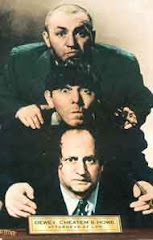All human beings are born free and equal in dignity and rights. Everyone has the right to life, liberty and security of person. These rights and freedoms may in no case be exercised contrary to the purposes and principles of the United Nations.
- from The Universal Declaration of Human Rights
The United Nations General Assembly
10 December 1948
Come to think of it, what exactly is a right, anyway? Philosophers and legal scholars have been discussing the concept of rights for a very long time. Entire libraries could be filled with books on this subject (and have been), and the entire study and practice of law is, in a sense, the art and science of defining rights. It would be insane to tackle this issue in any meaningfully deep way here. But to the extent that it is critically important for all of us on every conceivable side of this issue to be able to share at least a rudimentary vocabulary, it behooves us to discuss this notion of rights at this point.
There are two basic views about the origins and meanings of rights. There are those, whose opinions are exemplified by the Declaration above, who feel that rights are granted by, and their exercise protected by, the State. This is why they feel there is no contradiction in saying that all humans are “born free, with equal rights”, but that those rights are subject to the “purposes and principles of the U.N.”. Under this more modern system of defining one’s rights before the law, the term “rights” runs the risk of becoming so broad as to be meaningless. For if the UN or any government can make the most fundamental exercises of even “life, liberty, and security of person” subject to their “purposes and principles”, then these “rights” could conceivably be revoked by that same power which granted them.
The other view of rights is that they are quite literally “endowed” by one’s Creator (or by Nature itself). According to the members of this school of thought, because of their divine or at least ancient origins, true rights owe no homage to any earthly king or authority. In this view, rights must be given room even if they violate the purposes and principles of the UN or any other governmental body. Furthermore, under this view of rights, any governmental body that stands in the way of the free exercise of rights is illegitimate, due to a fundamental flaw that puts it at odds with the free exercise of a man’s Natural Rights, which are supreme and irrevocable. It was on this exact basis that the American Revolutionaries began the process of severing their bonds with their home nation; a nation they felt had become an oppressive force in their lives, and was, therefore, illegitimate and deserving of rejection.
But where did this concept come from? And how could a group of people be so sure that this was the nature of rights? Sure enough to risk “their lives and their sacred honor"? To understand, you have to trace the thought processes that were being conveyed by the Founders back to their roots. This second view of rights has ample historical support. From the most ancient histories, through the Greek philosopher Aristotle to the Roman statesman Cicero (106-43 B.C) (“According to the law of nature it is only fair that no one should become richer through damages and injuries suffered by another”); to Gratian (“Natural law is the law common to all peoples”); to Rufinus (1160 A.D.) ("Natural law is a certain force instilled in every human creature by nature to do good and avoid the opposite”); to William Ockham (“a tyrannical ruler may be deposed”); to Jean Gerson to Hugo Grotius (“Liberty is the power that we have over ourselves”) to John Locke (“Government has no other end, but the preservation of property”), and then on to Jefferson and Madison, the authors of our sacred American documents, there is a cohesive strand of thought about what constitutes “The Rights of Man”. Put simply, rights are privileges to which any one may lay claim as having been given to him or her by the Creator, or by Nature. They do not require any special help or assistance from others. They can not be given or taken by the powers that be. This single unbroken strand of thought exists backward and forward in time.
There is no need to rediscover the nature of rights. This has already been done for us over the past 3000 years. We only have to decide what is really a right and what is not one.


























